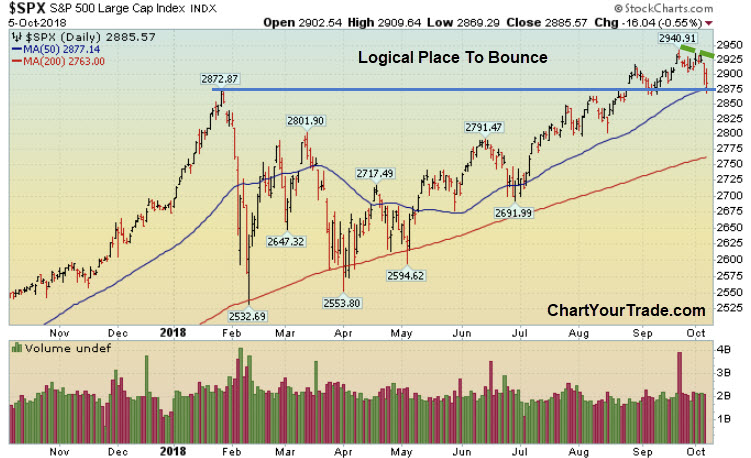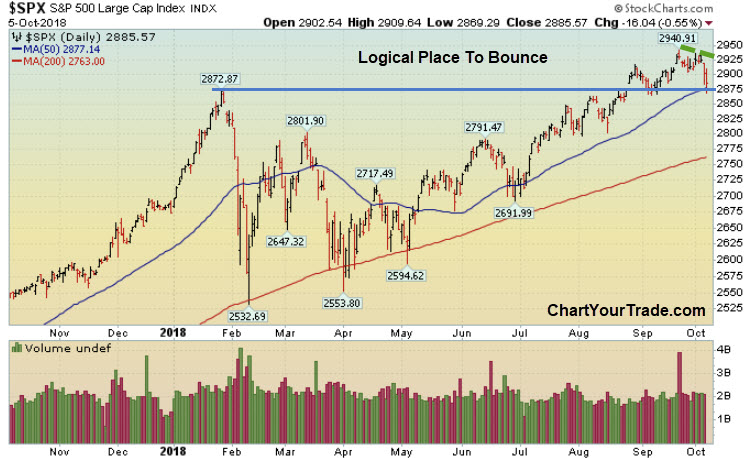
Stocks Smacked As Rates Spike
Stocks ended the week lower as rates spiked. Sellers showed up in droves after Jay Powell, The Chairman of The Federal Reserve, gave a speech and was more hawkish than expected. Mr. Powell said the Fed may take longer than expected before it stops raising rates. Within twenty-four hours, rates spiked hard and stocks were smacked. Before the big sell-off, the canary in the coal mine was the small-cap Russell 2000 which I noted last week and talked about that in Tuesday’s pre-market update to members. The reason why that is important is because the Russell 2000 was the first index to hit new highs after the Q1 sell-off and it was the first index to break down in this latest sell-off. Looking forward, the next two big events investors are focusing on are: earnings season and then the mid-term elections.
Monday-Wednesday Action:
On Monday, stocks opened higher but sold off during the day. The big news came after Canada and the U.S. reached a deal in the eleventh hour to replace NAFTA. The new deal will be named the United States-Mexico-Canada Agreement, or “USMCA” for short. The new deal will deliver more market access to U.S. dairy farmers, while Canada has effectively capped automobile exports to the U.S. Both nations, along with Mexico are expected to sign the agreement by the end of November. The big sell-off came from the Russell 2000 when it decidedly fell below its 50 DMA line. That is a concern because the Russell was the first index to breakout and hit a new high after the Q1 correction. So the fact that it is breaking down now doesn’t bode well for the market. On Tuesday, stocks were mixed as the Nasdaq and small-cap Russell 2000 were lower for most of the day. Stocks rallied nicely on Wednesday after the latest round of positive economic data was released. ADP, the country’s largest private payrolls company, said private employers added 230,000 new jobs last month, easily beating estimates for 185,000. Separately, the ISM non-manufacturing index hit its highest level in history which bodes well for the ongoing economic expansion.











Leave A Comment